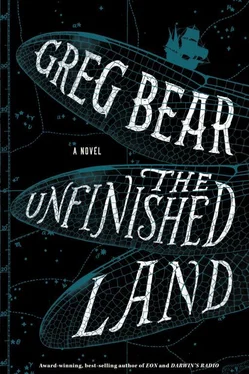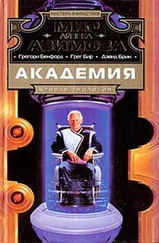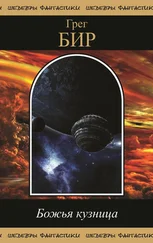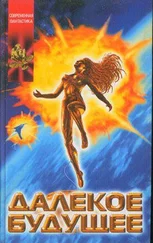Reynard was surprised by this long and doubtless blasphemous tale. Widsith chuckled. “I have long held my peace on such affairs,” he said. “The Spanish would have gutted and hanged me.”
Reynard could hardly believe any of it, so much did it differ from what he had heard in church. Still—his grandmother had spoken of such things, and his mother had not denied them, nor his father in the time before his death. The first word is the first mother. Reynard felt his own pulse quicken.
He asked, “The world is not finished?”
“No more than this island. Many more words remain to be found and fill in more blanks. So listen inside and out to Troy’s nonsense. What doth he hide in riddles? Where will deception cross over to instruction—at least, to hints?”
“But you called the King of Troy a mountebank!”
“Oh, he is that. His powers amuse and even cause alarm. But he is a kind of scholar as well.”
“He is an old friend, is he?”
“And an old teacher,” Widsith said. “Some think he hath met Hel, and learned much from her own lips—but I am not sure of that.”
“He is that old?”
“Without Eaters, he is sustained across the centuries. Someone favoreth him, but I know not who—or what. Perhaps he brought with him his old Greek gods.” Widsith seemed to lose himself in memories. “Be alert and listen close. To hear an etymon, a first word, is to feel one’s heart quake and bones shiver.”
“What words did the Travelers bring?” Reynard asked. “What were the first languages heard here?”
“I do not know,” Widsith said. “I have not lived that long! Quite a few arrived from England and Ireland when Norse raiders cut misery along those coasts. Others of Danish and Norse stock arrived from Greenland when the seals failed them and the trade in walrus tusks moved south, to Africa, where elephant tusks now have greater worth. I have heard from Sea Travelers like the tattooed man that much older folks, furtive and cautious, took their carved gods and sailed north to settle other islands around the circle. I know not if they are still there. The Norse and Danes and Swedes fought with the English at first, but both lost and learned, and now they abide mostly in peace. Those early times were rich for the King of Troy.”
“He deceived them all?”
Widsith nodded. “Deceived, guided, and protected. A gentle enough old soul, he did not wish destruction on any. And he did not wish them to destroy each other. So… What think’st thou he showed those who fought, till they recovered their senses?”
Reynard tried to imagine gentler battles on the beach, magic wars back and forth. “He could have sent forth bone-soldiers, till the living broke their blades and tired.”
“In sooth, that was the way of it,” Widsith said, tilting his head in admiration.
“But the Eaters are not kind! In the village, and in the woods, how many Spaniards did they drain?” Reynard asked, with a frown, as if the question itself tested his borders.
“Eaters share purpose with all the islanders,” Widsith said. “It is their pact with Hel. Though not all Eaters obey. Some say that is because it has been so long since Hel walked these shores.”
“And what about Crafters? Did Hel make them for her own purposes?
“Thou dost not know even what a Crafter is.”
“Do you?”
“Fair enough. I have yet to meet one.” Widsith looked at him with a peculiar wrinkle of his lips, as if remembering his own youth and envying Reynard. “Who asketh… in thy head, boy?”
Reynard considered for a moment. “There is my uncle’s wit and my gram’s knowing. They would ask.”
“They seem wise as voices go.” A last tinkle of laughter echoed from up the narrow lane between trees and bushes. Widsith frowned. “Best be with friends when night falleth, no?”
“Yes, but what do we fear?”
“We stray from town, and not all Eaters observe the pact, but others just beneath the sky, more powerful than those who stray, have interest in thee, and would keep thee safe to speak, boy.”
“What have I to tell?”
“Gossip!” Widsith says. “Not just Guldreth, but Maeve, and possibly even Maggie and Dana, are eager to hear news of the King of Spain and the Queen of England, and their war, and how English and Spanish women bear up under all that, and how valiant strong and handsome men fight and die for Queen and country. Even better, thou canst tell them what dress be favored by women in the court.”
“Oh.” Reynard looked unhappy. “I do not know that! This King of Troy, was he really ever the King of Troy?”
“Was he ever Priam?” Widsith laughed. “No, boy. Likely that was his stage name in Makedonia before he arriv’d here.”
Reynard had never heard of some of the places Widsith talked about, and he frowned again.
“Makedonia,” Widsith repeated. “Home of Alexander, called the Great. Ask the King of Troy about him sometime. Get him drunk, and he’ll claim he knew Alexander… in the Biblical sense.”
Reynard flushed, though he was hardly innocent. He had heard the Spanish were more forgiving in such matters, but suspected that was war talk, to make English sailors hate them more—not actual truth. So his uncle would have judged. “Is it all queens and no kings here?”
“A king was defeated. To the west, and across the blasted waste at the center, a mountainous, icy desert now belongs to powerful Sister Queens, who do not believe in Queen Hel, or the island’s history as most often told here. But they are far away, at least… they were when I last departed.” He looked uneasy. “Most around here serve the Travelers, who serve the Crafters, of course.”
“Have you ever been summoned by the Crafters?”
“No,” Widsith said.
“But how do you report to them?”
“I deliver my story to those who serve them—the Travelers.”
“Who commandeth the village and on this coast?”
“You have met Dana and Maggie. They serve Maeve, and in truth, all are the humblest and sweetest,” Widsith said, with another wry face. “But in the Ravine… who can know?” He frowned at a strange glow from the far side of the forest. “This is not normal night. Something is casting a deep shadow—and it is not Troy!”
Around a bend in the path, a man stumbled between the trees, then fell to his knees and pitched onto his face. The hiss-crack-POP of a harquebus resounded, followed by shouts and what sounded like cannon or powder blasts.
Widsith grabbed Reynard and hid him in a thicket of alders, keeping close while the battle seemed to move off, or diminish. Then he walked from the thicket and bent over the fallen man. “He hath semblance to a grumete of Cardoza… but that boy was younger than thee, and this—”
Out of the gloom, half visible in the best of lights, came a glassy figure, dressed mostly in black furs, like the Russian sables Reynard had heard of.
Widsith got to his feet and faced him.
“Pilgrim,” the figure said. “That one is mine. Back away and let me finish.”
Widsith wiped his hands on his pants, bowing slightly in his retreat.
The Eater seemed to slip between one shadow and another, and suddenly stood beside the fallen grumete. He knelt and bent over the man’s torso, then rolled him over and laid his ear on the man’s sternum, as if checking for a heartbeat. Deep-pitted eyes watching Widsith and Reynard, the Eater’s face became a fog, a swirl, and then merged with the fallen man, who now simply folded inward, like one of the collapsed houses in the village.
Leaving a pile of drifting ash.
“His time is done,” the Eater said. He rose slowly and touched his face with both hands. The face reacquired a sort of definition. “Didst thou know this man?”
Читать дальше







